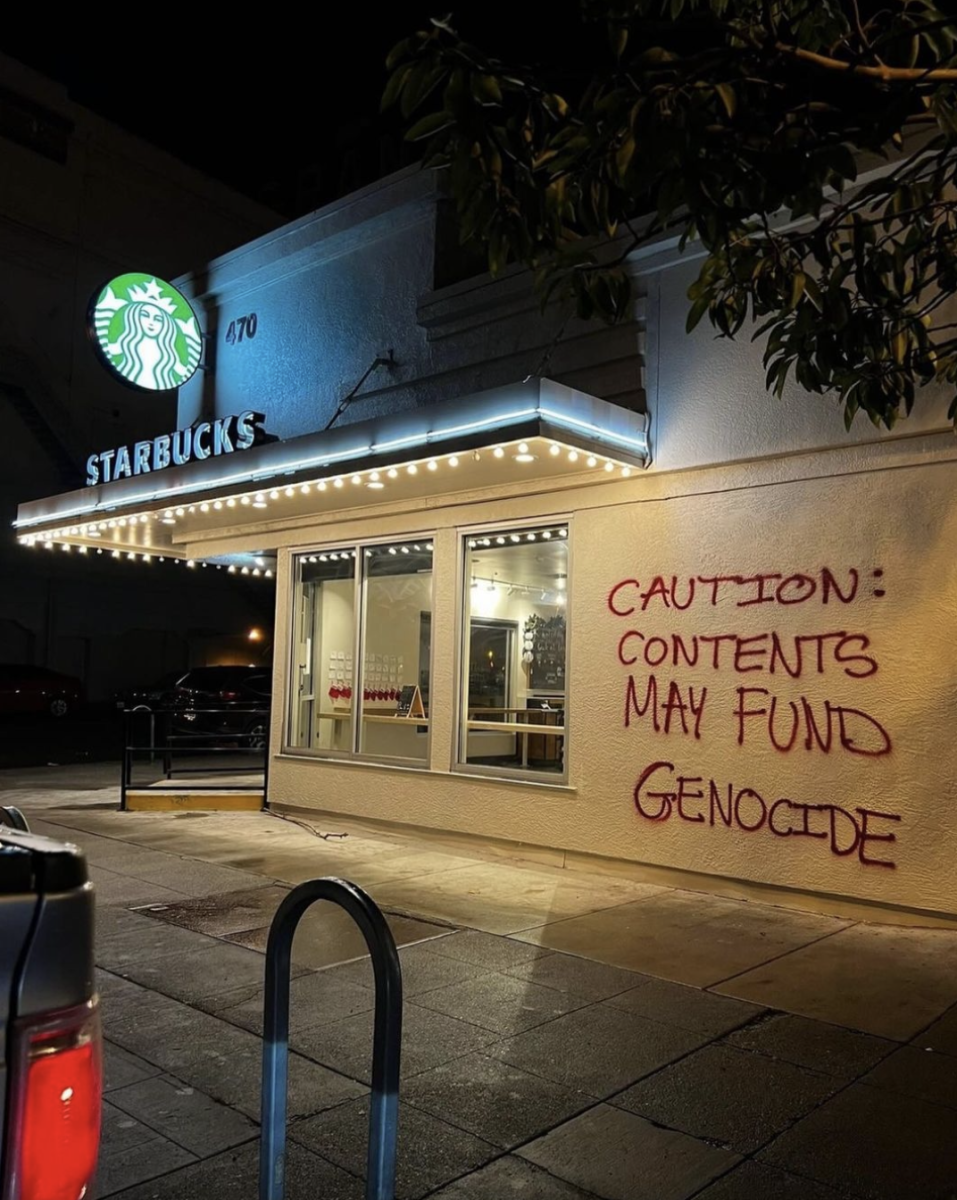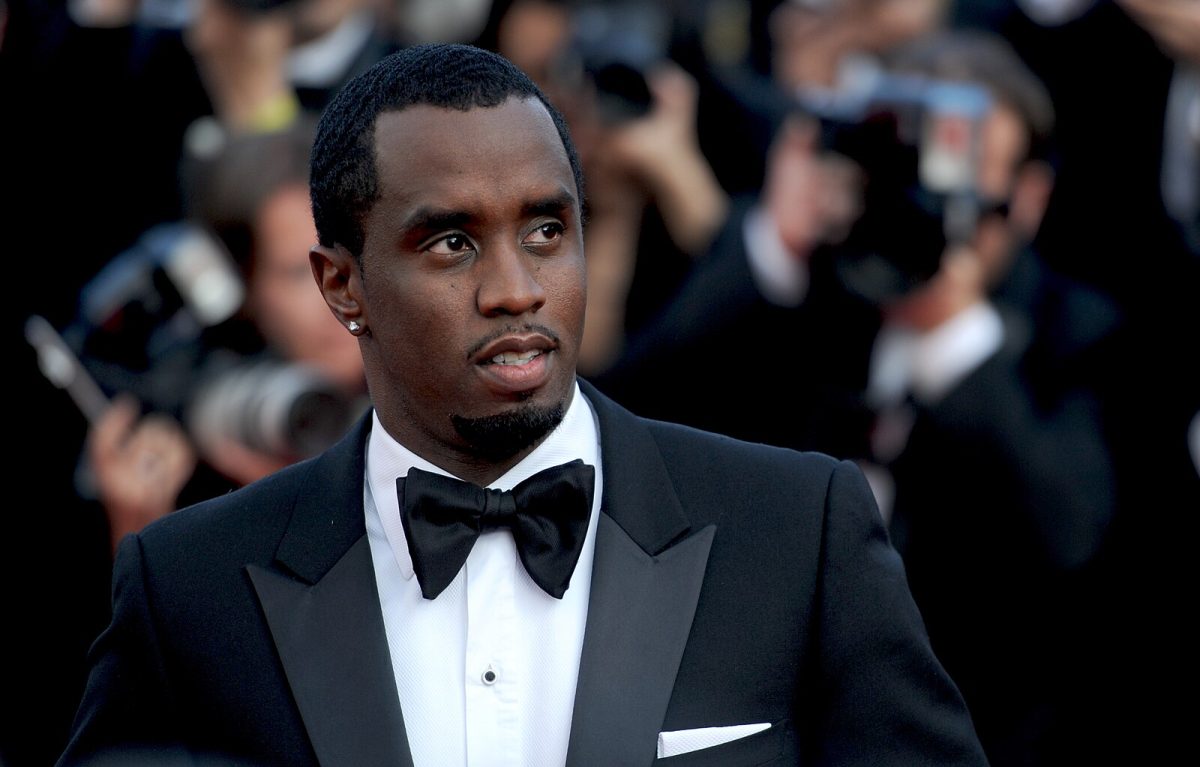On Jan. 30, Starbucks CEO Laxman Narasimhan stated that sales in the US and the Middle East have dropped in the last quarter of 2023 due to “misrepresentation” of the company’s stance on the Israel-Palestine war. Analysts forecast a sales growth of 7-10 percent, a drop from the previous years’ 10-12 percent, partly due to protests from pro-Palestine supporters. Starbucks is just one of the many companies being boycotted by pro-Palestine organizations such as the BDS movement.
The catalyst of the Starbucks boycotts was the companies’ retaliation against Starbucks’ union, Starbucks Workers United, for supporting Palestine. “Not a lot of people know that the reason the boycott started was because of a tweet from the union that was in support of Palestine, and Starbucks retaliated by suing the union. A lawsuit that’s going nowhere.” said University student and Workers United member Riley Fell. In a tweet, the union expressed support for Palestinians when they quote tweeted a video of a bulldozer tearing down a fence separating Gaza from Israel, saying, “Solidarity with Palestine!” before deleting it an hour later.
On Oct. 11, Starbucks posted a statement in which they “condemn” and “disagree with the statements and views” of Workers United regarding the conflict. They also state that the union “do[es] not speak for Starbucks Coffee Company and do not represent the company’s views, positions or beliefs.” On Oct. 18, Starbucks sued the union in Iowa for trademark infringement because of the use of their intellectual property. In a statement, Starbucks stated that the tweet caused “Starbucks partners, including some they represent, being threatened and subjected to graphic messages.” The union has since countersued Starbucks for defamation in Pennsylvania.
Started in 2005, BDS (Boycott, Divestment Sanctions) is a Palestinian movement created to boycott, divest or sanction economically from Israel in a non-violent manner. According to the BDS website, the organization is working “to end international support for Israel’s oppression of Palestinians and pressure Israel to comply with international law.” The organization’s three main targets are to end Israeli occupation, recognize the rights of Palestinians living in Israel and to protect Palestinian refugees’ right to return to their former homes/properties. BDS uses a targeted boycott approach instead of targeting all of the companies supporting Israel.
Notable consumer boycott targets are Hewlett-Packard (HP), Puma and SodaStream. Divestment and exclusion include Elbit Systems and Intel. Pressure targets include Amazon, Google and Disney. Companies like McDonald’s and Burger King are targeted as grassroots organized boycotts. Currently, BDS has not included Starbucks on its list to boycott, pressure or divest from.
University student Alec Conwell said, “I am boycotting Starbucks despite it not being [part] of the official BDS boycott. I would probably stop boycotting if Starbucks changed its policies and stances, treated its workers better and stopped union busting. Even still, I would try and go to smaller cafes on the regular because [Starbucks] is a huge corporation.” In the past, the BDS organization has warned of a potential boycott against Starbucks. In 2014, Starbucks was in talks of buying SodaStream, one of the companies on the BDS list, and was “issued a stern warning.” This was just a few months before the start of the 2014 Gaza war, which killed over 2,000 Palestinians.
The October to December quarter of 2023 was less successful than Starbucks initially expected. Days that saw boosted foot traffic and sales, such as Red Cup Day, only saw a 32 percent boost, 49 percent lower than the 81 percent boost in 2022. Seasonal offers also did not see “the same kind of traction” as in previous quarters. University student Olivia Bush said, “I have been boycotting Starbucks pretty much right after [the war] started. I think boycotting is effective because of how much money they have lost.”
Starbucks has cited boycotts, especially in Middle Eastern locations, as one reason sales have decreased. For example, Indonesia, the country with the largest Muslim population, has seen protests and boycotts of Starbucks and other brands, such as McDonald’s, since the beginning of the war. However, Starbucks has also cited inflation as a significant cause of the decline. Currently, their yearly growth is predicted to be 4-6 percent, down from the previous year’s 5-7 percent.








